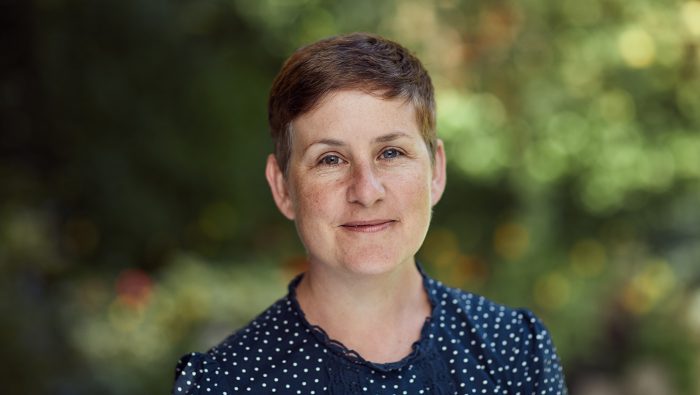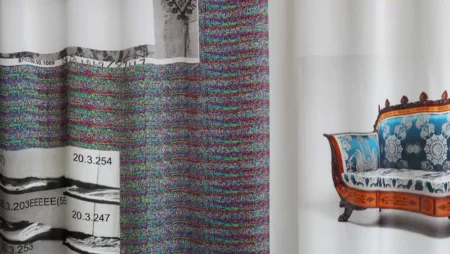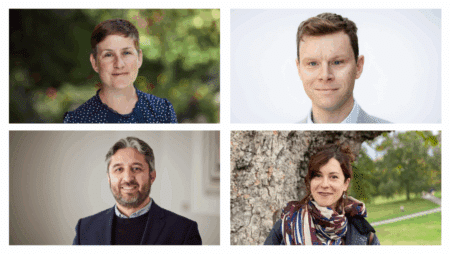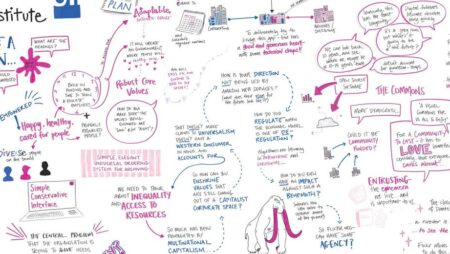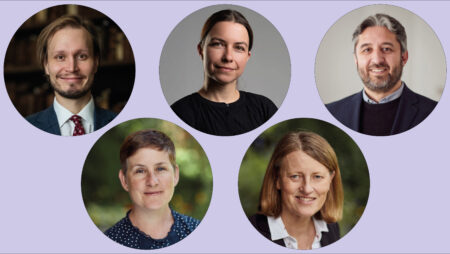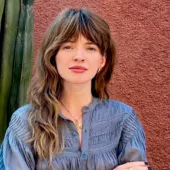About
Kathryn is Associate Professor and Senior Research Fellow at the Oxford Internet Institute, where her research interests lie broadly in Digital Culture and Heritage. Her research programme encompasses work on immersive technologies and virtual handling, digital engagement with museums and collections, using social data to understand impact and engagement with cultural heritage objects and spaces, and understanding the role of AI in our cultural experiences.
Kathryn has been PI of the Cabinet project since 2015. Cabinet is a collaboration between the OII, the Oxford University Museums and IT Services, which developed an interactive, mobile-optimised digital platform to support and encourage object-based learning. In collaboration with the Pitt Rivers Museum, Kathryn led the Open Cabinet project (2018-9), to further experiment with 3D, AR and XR technologies to enhance both student and visitor engagement with objects, and the Cabinet Unlocked project (2023-4) to consider the role of XR in decolonial practice. The original Cabinet project built on research developed during Kathryn’s AHRC Early Career Fellowship (2012-3), which examined the role and impact of crowdsourcing on public engagement with and awareness of museum collections, and to elicit new information about the impact on users and on modes of formal and informal learning.
Kathryn is also interested in the potential for social data to contribute understandings of visitor engagement with heritage sites and objects. From 2018-20, she held a Knowledge Exchange Fellowship at TORCH where she led the Hashtag Heritage project, working with English Heritage to pilot the use of social media data to understand engagement with free-to-access heritage sites. This project inspired the GLAM Labs Playful Spaces project, which also used social media to map playful visitor engagement with Oxford’s museums, and the Heritage Lab in Your Pocket project (2023-5) which considers how pocket technologies to map heritage sites and objects can be put to use as pedagogical tools.
Alongside a group of her doctoral students, Kathryn has been exploring the role of AI on our cultural worlds through the AI Futures project (2022-3) which interrogated the impact of AI on ideation, curation and the visitor experience, using the exhibition as both public engagement and research tool. Her most recent project AI is not Photography (2024-5) focuses on AI in cultural production.
Kathryn has longstanding connections with the Humanities Division and The Oxford Research Centre for the Humanities (TORCH), where she is part of the first Oxford-Uppsala Culture and Creativity research cluster. As the University’s first Digital Humanities Champion, Kathryn was responsible for the Digital Humanities Programme at TORCH from 2014-7, including the 2015-16 Headline series Humanities and the Digital Age. She is Associate Faculty member of the Faculty of History, where she completed her doctorate in modern British history in 2008. Kathryn’s interests in gender, identity and social change stem from that doctoral work and have since found new directions, playing a pivotal role in the Semantic Map of Sexism and Offensive Internet projects, where her research sought to understand how and where sexism is experienced, and to expose the interplay between constructions of sexism in both public and private spaces, and how cultures of offensive speech proliferate online.
Kathryn has worked with a range of cultural and heritage institutions including Oxford’s University Museums, English Heritage, the National Trust, Historic Royal Palaces, ArtUK, Flickr Foundation, and the Commonwealth War Graves Commission.
Kathryn’s work has been funded by the AHRC, Google, JISC, and the Dieter Schwarz Foundation, and by the University of Oxford through TORCH, the Oxford-Minderoo Challenge Fund, IT Innovation Fund, GLAM Labs, John Fell Fund, ESRC IAA Fund, Business Engagement Fund, Van Houten Fund, and the Returning Carers Scheme.
Research Interests
Cultural heritage, museums, arts and cultural industries, digital humanities, crowdsourcing, education, impact, users, wellbeing, digital and public history, AI, history, gender, sexism.
Teaching
Kathryn has a large group of doctoral students and runs a lively Creativity and Technology reading group that meets fortnightly during term. She teaches Cultural Analytics, an eight-week optional subject, to OII MSc students and teaches and mentors students on the interdisciplinary MSc in Digital Scholarship. She also takes occasional tutorials and classes on public and digital history at Pembroke College, where she is a Senior Associate.

